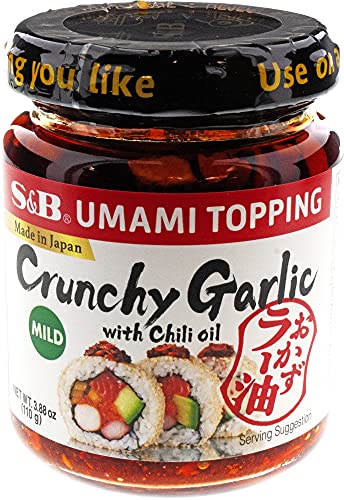Good morning my reader, Jane Smith, editor at best2buy.reviews. I’m glad to share you some information and insight for choosing Vegetable oils. Let’s explore now!
- 1. Vegetable Oils
- 2. Types of vegetable oils
- 2.1. Olive Oil:
- 2.2. Canola Oil:
- 2.3. Soybean Oil:
- 2.4. Corn Oil:
- 2.5. Sunflower Oil:
- 2.6. Palm Oil:
- 2.7. Coconut Oil:
- 2.8. Avocado Oil:
- 2.9. Peanut Oil:
- 2.10. Sesame Oil:
- 3. Advantages of Vegetable Oils
- 3.1. Versatility:
- 3.2. High Smoke Points:
- 3.3. Nutritional Value:
- 3.4. Source of Essential Fatty Acids:
- 3.5. Plant-Based:
- 3.6. Long Shelf Life:
- 3.7. Economic Value:
- 3.8. Texture and Moisture Enhancement:
- 3.9. Culinary Variety:
- 3.10. Industrial Applications:
- 4. How to choose Vegetable Oils?
- 4.1. Smoke Point:
- 4.2. Flavor Profile:
- 4.3. Nutritional Content:
- 4.4. Fatty Acid Composition:
- 4.5. Processing Methods:
- 4.6. Health Considerations:
- 4.7. Culinary Use:
- 4.8. Storage Stability:
- 4.9. Ethical and Environmental Impact:
- 4.10. Allergies:
- 5. In conclusion
Vegetable Oils
Vegetable oils are oils extracted from the seeds, nuts, or fruits of plants. They are widely used in cooking, food preparation, and as ingredients in various products.

Types of vegetable oils
Here are some common types of vegetable oils:
Olive Oil:
- Extracted from olives, olive oil is a staple in Mediterranean cuisine. It comes in various grades, including extra virgin, virgin, and regular olive oil, each with different levels of refinement.
Canola Oil:
- Derived from the rapeseed plant, canola oil is low in saturated fat and has a high smoke point, making it suitable for various cooking methods.
Soybean Oil:
- Extracted from soybeans, soybean oil is one of the most widely used cooking oils. It is often used in frying and baking due to its neutral flavor and versatility.
Corn Oil:
- Made from corn germ, corn oil is commonly used in cooking and frying. It has a relatively high smoke point and a mild flavor.
Sunflower Oil:
- Extracted from sunflower seeds, sunflower oil is a light and mild oil with a high smoke point. It is often used in frying, baking, and salad dressings.
Palm Oil:
- Derived from the fruit of the oil palm tree, palm oil is commonly used in both cooking and the food industry. There are concerns about the environmental impact of palm oil production, including deforestation and habitat destruction.
Coconut Oil:
- Extracted from the meat of coconuts, coconut oil is solid at room temperature and is often used in baking, cooking, and even skincare. It has a distinct coconut flavor.
Avocado Oil:
- Pressed from the pulp of avocados, avocado oil is rich in monounsaturated fats and is often used in salads, dressings, and for high-heat cooking.
Peanut Oil:
- Extracted from peanuts, peanut oil has a high smoke point and is commonly used in frying. It has a mild flavor that complements many dishes.
Sesame Oil:
- Made from sesame seeds, sesame oil is commonly used in Asian cuisine for flavoring. It comes in both light and dark varieties, each with a different flavor profile.
Vegetable oils are not only used for cooking but are also common ingredients in a variety of processed foods.
Advantages of Vegetable Oils
Vegetable oils offer several advantages, making them widely used in cooking, food preparation, and various industrial applications. Here are some of the key advantages of vegetable oils:
Versatility:
- Vegetable oils are versatile and can be used for various cooking methods, including frying, baking, sautéing, and salad dressings. Their neutral or mild flavors make them suitable for a wide range of dishes.
High Smoke Points:
- Many vegetable oils have high smoke points, which means they can withstand high temperatures without breaking down and producing harmful compounds. This makes them suitable for deep frying and other high-heat cooking methods.
Nutritional Value:
- Some vegetable oils, such as olive oil and avocado oil, are rich in monounsaturated and polyunsaturated fats, which are considered heart-healthy fats. They may also contain vitamin E and other antioxidants.
Source of Essential Fatty Acids:
- Certain vegetable oils, like flaxseed oil and soybean oil, are good sources of essential fatty acids, such as omega-3 and omega-6 fatty acids. These fatty acids are important for overall health and are essential components of a balanced diet.
Plant-Based:
- Vegetable oils are plant-based, making them suitable for vegetarians and vegans. They provide an alternative to animal fats in cooking and food preparation.
Long Shelf Life:
- Many vegetable oils have a relatively long shelf life due to their low susceptibility to spoilage. Proper storage in a cool, dark place helps extend their freshness.
Economic Value:
- Vegetable oils are often more cost-effective compared to some other cooking fats and oils, making them accessible to a wide range of consumers.
Texture and Moisture Enhancement:
- In baking, vegetable oils contribute to the texture and moistness of the final product. They are often used in recipes for cakes, muffins, and other baked goods.
Culinary Variety:
- Different vegetable oils bring unique flavors to dishes. For example, olive oil adds a distinctive taste to Mediterranean cuisine, while sesame oil imparts a characteristic flavor to many Asian dishes.
Industrial Applications:
- Beyond the kitchen, vegetable oils are used in various industrial applications, such as in the production of biodiesel, as lubricants, and in the cosmetic and pharmaceutical industries.
How to choose Vegetable Oils?
Kindly check some factors when selecting vegetable oils:
Smoke Point:
- Consider the cooking method. Oils with high smoke points, such as refined canola, soybean, and peanut oils, are suitable for frying and high-heat cooking. For lower-heat cooking or salad dressings, oils with lower smoke points, like extra virgin olive oil or flaxseed oil, may be more appropriate.
Flavor Profile:
- Different oils impart distinct flavors to dishes. For example, olive oil adds a fruity and slightly peppery taste, while sesame oil contributes a nutty flavor. Consider the flavor that will complement the specific dish you are preparing.
Nutritional Content:
- Pay attention to the nutritional composition of the oil. Some oils, like olive oil and avocado oil, are rich in monounsaturated fats, which are considered heart-healthy. Others, like flaxseed oil, provide essential omega-3 fatty acids.
Fatty Acid Composition:
- Consider the balance of fatty acids. A good balance of omega-3 and omega-6 fatty acids is important for a healthy diet. Oils like flaxseed, walnut, and canola oils provide a favorable ratio of these essential fatty acids.
Processing Methods:
- Check the processing methods. Cold-pressed or expeller-pressed oils are generally considered more natural and retain more of their original flavor and nutritional content. Highly refined oils may have a milder taste but could lose some beneficial compounds in the refining process.
Health Considerations:
- Consider your health goals. If you're looking for an oil with specific health benefits, such as reducing cholesterol, choose oils high in monounsaturated or polyunsaturated fats. Consult with a healthcare professional for personalized advice.
Culinary Use:
- Match the oil to the culinary application. Some oils work well in baking, while others are better for sautéing or as finishing oils for salads. For example, coconut oil is solid at room temperature and can add a unique flavor to baked goods.
Storage Stability:
- Consider the shelf life and stability of the oil. Oils with higher levels of unsaturated fats are more prone to oxidation and rancidity. Store oils in cool, dark places to maintain freshness.
Ethical and Environmental Impact:
- Be mindful of the environmental and ethical considerations associated with certain oils, especially palm oil. Choose sustainably sourced oils to minimize environmental impact.
Allergies:
- Consider any allergies in your household. Peanut oil, for example, may be unsuitable for those with peanut allergies.
In conclusion
Vegetable oils are a great way to add flavor and nutrition to your cooking. If you want to buy Vegetable Oils, check out websites. We noted top products which highly appreciated. You can refer and buy it in store or shopping online. If you buy online, check out Amazon as link, it’s very convenient. Hope you will find and satisfied with your selection.
If you need any further information, kindly comment below. I’m James Wilson, editor at best2buy.reviews. I’m very happy to answer your questions.











